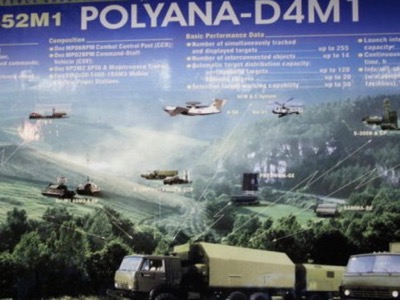The US Air Force is condemned to defeat if it confronts the Syrian Arab Army, which now has in its possession Russian anti-air materials, the best in the world. The US’s only viable option is to leave, sparing itself any humiliation.
History is repeating itself. Once before, in Iraq, the United States had used Kurdish combattants, promising them a State before letting them be massacred by Saddam Hussein. Today the US lets other Kurds to whom it has also promised a State, face up to Turkey alone.
_ In a few months the war will be over. After eight years of fighting and tens of thousands of Islamist mercenaries being sacrificed, Nato’s dream of destroying Syria’s state structures will have failed.

A week ago, two S-300 rocket missiles were deployed in Deir Ez-zor, in East Syria. Immediately after, the intensity of the US-led coalition flights decreased by 80% in North East Syria. Since 18 September 2018, the Israeli Air Force has not carried out any more raids in Syria’s airspace.
A delegation from the Israeli army, led by General Major Aharon Haliva (Head of Operations), went to Moscow for talks with Major General Vasily Trushin (Joint Chief of Operations of the Russian Army). Relations between the two armies have deteriorated after the destruction of the Russian airplane IL-20 during the attack on Syrian targets near the Russian air base of Hmeymim by the Israeli F-16.
The Israeli delegation went to Moscow because it had not succeeded in finding the gaps in the no fly zone, imposed by the new system of Syrian Defense delivered by Russia. The Israelis thought they could coax the Russians to obtain the security codes for Syrian missiles. Russia, quite clearly, refused to give these codes to them.
What are the elements of the automatized management of the Syrian air space that prevent the Israelis and Americans from acting? Syria has received 6 to 8 S-300/PMU2 missiles, with an action range of 250 km. The missiles guarantee the security of planes and Syrian military land targets. However, they are not the most important element.
Management is assured by the automatized management system, Polyana D4M1. The role of the automatized management system is a necessary interface for the Syrian air units and anti-Air Defense apparatus to work at the same time. Polyana D4M1 can cover an area of 800 km2, following 500 air targets and ballistic missiles and establishing 250 of them. It is thanks to the Polyana D4M1 that command centres of the army of the Syrian Air Force also receive external information from the Russian airplane A-50U (AWACS) and Russian satellites of surveillance.
The memory of the Polyana D4M1 computer servers stock the radar imprint of all the air targets including the cruise missiles and the allegedly “invisible” F-35 plane.
When an air target is detected by a radar in Syria, the automatized system Polyana D4M1 posts information for all the detection radars and systems for guiding planes and Syrian and Russian anti-air artillery. Once identified, the air targets are automatically assigned to be struck down. This automatized system ensures that the oldest Syrian missiles of the Soviet era (S-200, S-75, S-125, etc.) become almost as precise as the S-300 missile.
The Polyana D4M1 network also includes the following:
• the Krasukha-4 for jamming the radars on the ground
• AWACS aircrafts
• reconnaissance planes with or without pilots.
The network also uses the Zhitel R-330ZH systems for interfering with NAVSTAR (GPS), the apparatus of navigation. This equips the means of attack (planes, helicopters, cruise missiles, guided bombs, etc.).
What is the consequence of Russia implementing the automatized management of the Syrian air space?
The US military air bases in Syria consist essentially of troops for special operations. By this we mean a light infantry, without any armour or support. They could not therefore ward off any land attack carried out by the Syrian army supported by the Air Force. Having understood that the US Air Force will not be able to pass the Syrian anti-air barrage without unacceptable losses, any US intervention becomes inappropriate. This is why the US has just announced that it will start to withdraw 2,000 soldiers from Syria [1]. At the same time, Turkey, supported by Russia, is getting ready to launch a new offensive against the YPG in Northern Syria. These new circumstances ensure the Syrian Army will fight on the side of Turkey. The YPG, trained and supported by the United States, is quickly losing all the territories that it had taken from the Islamic State which itself had taken from Syria.
[1] The US has announced that it has 2000 soldiers on the ground in Syria. The actual figure is double this.

 Articles by this author
Articles by this author Send a message
Send a message























Stay In Touch
Follow us on social networks
Subscribe to weekly newsletter